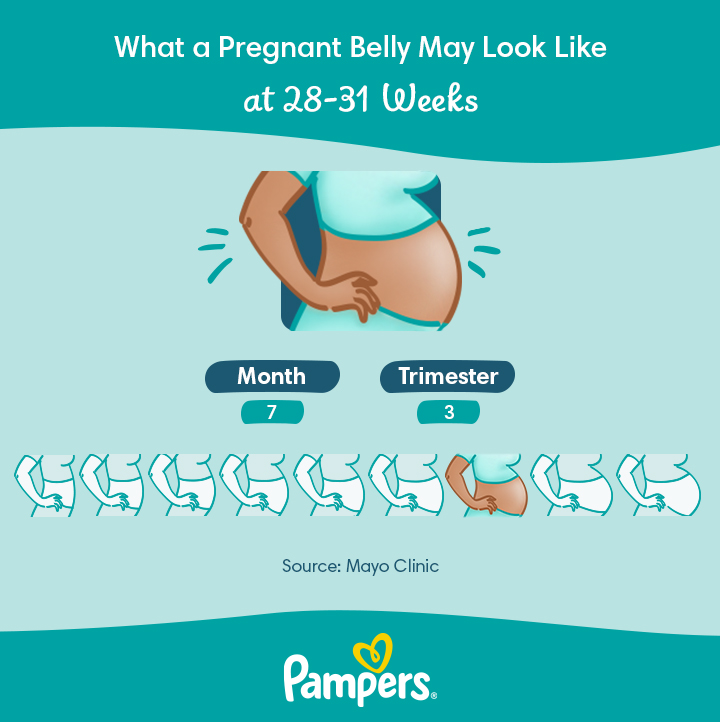
The 28th Week of Pregnancy: A Comprehensive Guide
Introduction
The 28th week of pregnancy marks a significant milestone in the journey towards childbirth. By this time, the baby has made remarkable progress in growth and development, and the mother’s body has undergone numerous adaptations to accommodate the growing fetus. This article provides a comprehensive overview of the 28th week of pregnancy, covering various aspects such as fetal development, maternal changes, common symptoms, and essential prenatal care.
Fetal Development
At 28 weeks gestation, the baby is approximately 14 inches long and weighs about 2.2 pounds. The fetus is now fully formed, with all major organs and systems functioning. However, the lungs are still developing and will continue to mature until birth.
Physical Appearance:
- The baby’s skin is becoming less wrinkled and more plump as it accumulates fat.
- The hair on the head is growing longer and thicker.
- The eyes are fully developed and can open and close.
- The fingernails and toenails are visible.
Sensory Development:
- The baby can hear sounds from the outside world, including the mother’s voice.
- The baby can respond to light and touch.
- The baby’s taste buds are developing, and it can differentiate between sweet and sour flavors.
Motor Skills:
- The baby can move its arms, legs, and head with increasing coordination.
- The baby can make sucking motions and grasp objects.
- The baby can turn its head towards sounds or lights.
Maternal Changes
Physical Changes:
- The uterus has expanded significantly and is now about the size of a football.
- The abdomen is protruding, and the mother may experience a "bump" or "pooch."
- The breasts are enlarged and may produce colostrum, a precursor to breast milk.
- The skin may become darker in certain areas, such as the nipples, areolas, and linea nigra.
- The feet may swell due to increased fluid retention.
Emotional Changes:
- Mood swings are common during the 28th week of pregnancy due to hormonal fluctuations.
- The mother may experience increased anxiety and excitement as the due date approaches.
- The mother may feel a strong bond with the baby and begin to imagine life after childbirth.
Common Symptoms
- Back pain: The expanding uterus can put pressure on the lower back, causing discomfort.
- Constipation: The increased levels of progesterone can slow down digestion, leading to constipation.
- Heartburn: The enlarged uterus can push against the stomach, causing acid reflux.
- Frequent urination: The growing uterus puts pressure on the bladder, increasing the frequency of urination.
- Leg cramps: The increased weight and fluid retention can cause leg cramps, especially at night.
- Nasal congestion: Increased blood flow can lead to swelling of the nasal passages, causing congestion.
- Shortness of breath: The enlarged uterus can press against the diaphragm, making it difficult to breathe deeply.
- Varicose veins: The increased blood volume can put pressure on the veins in the legs, causing them to become varicose.
Essential Prenatal Care
Prenatal Appointments:
- Regular prenatal appointments are crucial during the 28th week of pregnancy.
- The doctor will monitor the baby’s growth and development through ultrasound and listen to the baby’s heartbeat.
- The doctor will also check the mother’s blood pressure, weight, and urine.
Nutrition:
- A healthy diet is essential for both the mother and the baby.
- The mother should consume plenty of fruits, vegetables, whole grains, and lean protein.
- Iron and calcium supplements may be recommended to ensure adequate intake.
Exercise:
- Moderate exercise is beneficial during pregnancy, but strenuous activity should be avoided.
- Walking, swimming, and yoga are good options for pregnant women.
Rest:
- Getting enough rest is important for the mother’s physical and emotional well-being.
- The mother should aim for 7-9 hours of sleep each night and take naps when possible.
Emotional Support:
- Emotional support from family, friends, and a partner is crucial during pregnancy.
- Talking about concerns and feelings can help reduce stress and anxiety.
Warning Signs
Although most pregnancies progress without complications, it is important to be aware of certain warning signs that may indicate a problem:
- Severe abdominal pain
- Vaginal bleeding
- Fever
- Chills
- Persistent vomiting
- Sudden swelling of the hands, face, or feet
- Difficulty breathing
If any of these symptoms occur, the mother should contact her doctor immediately.
Conclusion
The 28th week of pregnancy is a time of significant growth and change for both the baby and the mother. By understanding the fetal development, maternal changes, common symptoms, and essential prenatal care, pregnant women can navigate this stage of pregnancy with confidence and prepare for the exciting journey ahead.